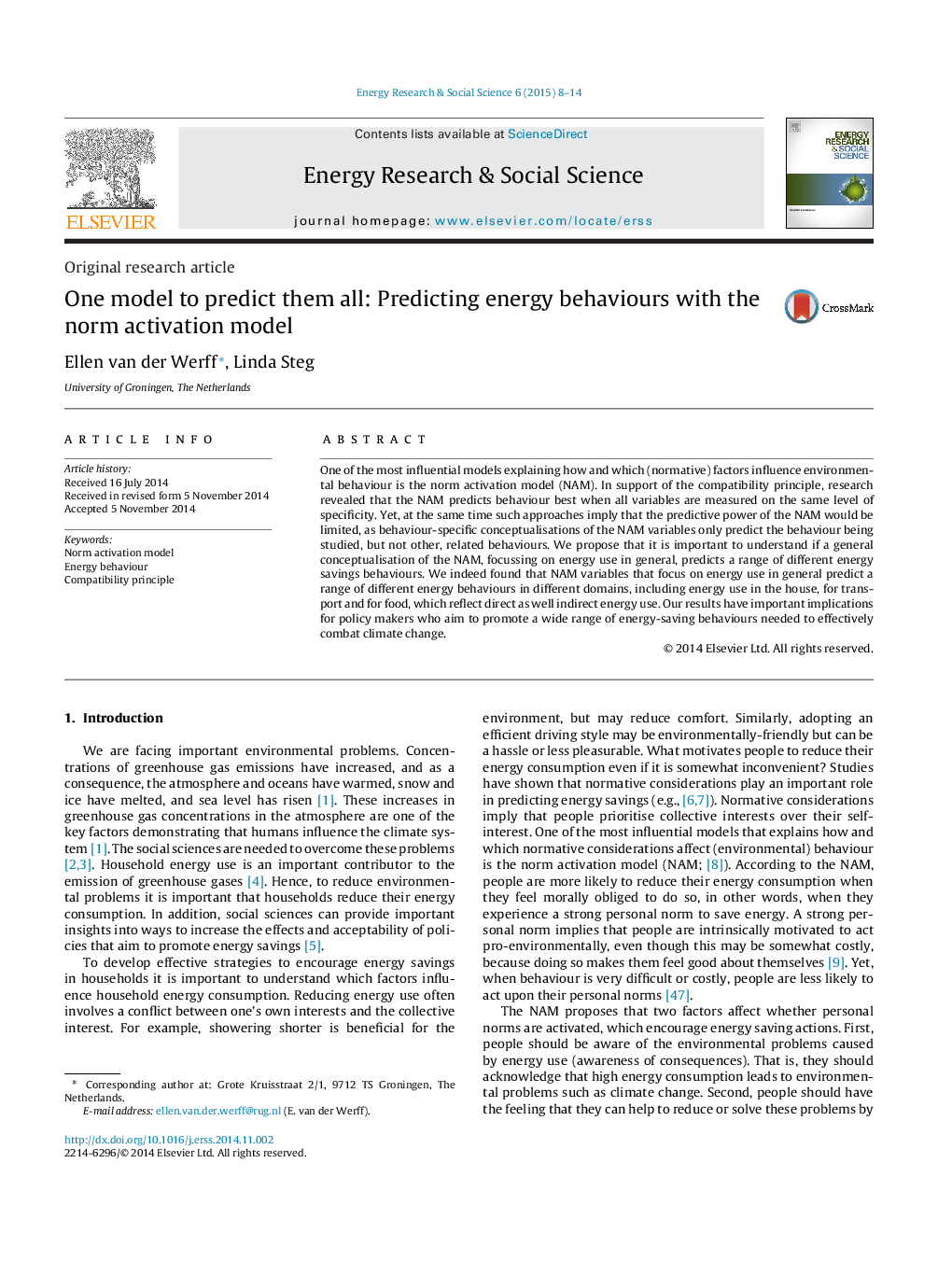| Article ID | Journal | Published Year | Pages | File Type |
|---|---|---|---|---|
| 6558878 | Energy Research & Social Science | 2015 | 7 Pages |
Abstract
One of the most influential models explaining how and which (normative) factors influence environmental behaviour is the norm activation model (NAM). In support of the compatibility principle, research revealed that the NAM predicts behaviour best when all variables are measured on the same level of specificity. Yet, at the same time such approaches imply that the predictive power of the NAM would be limited, as behaviour-specific conceptualisations of the NAM variables only predict the behaviour being studied, but not other, related behaviours. We propose that it is important to understand if a general conceptualisation of the NAM, focussing on energy use in general, predicts a range of different energy savings behaviours. We indeed found that NAM variables that focus on energy use in general predict a range of different energy behaviours in different domains, including energy use in the house, for transport and for food, which reflect direct as well indirect energy use. Our results have important implications for policy makers who aim to promote a wide range of energy-saving behaviours needed to effectively combat climate change.
Related Topics
Physical Sciences and Engineering
Energy
Energy (General)
Authors
Ellen van der Werff, Linda Steg,
